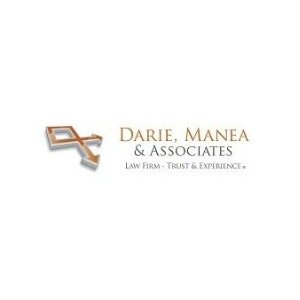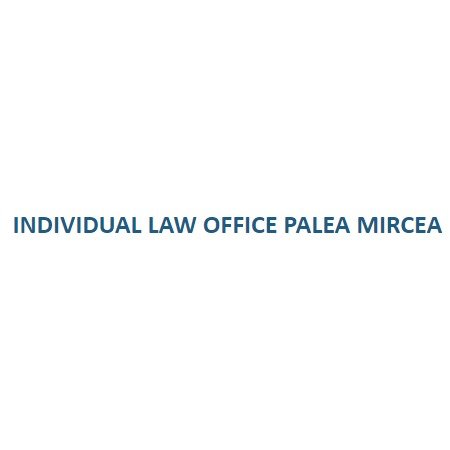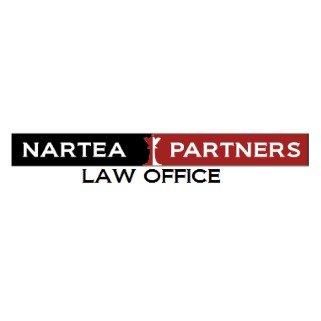Best Structured Finance Lawyers in Romania
Share your needs with us, get contacted by law firms.
Free. Takes 2 min.
Or refine your search by selecting a city:
List of the best lawyers in Romania
About Structured Finance Law in Romania
Structured finance in Romania refers to a broad set of complex financial transactions that are designed to help companies, financial institutions, or investors manage risk, access new funding sources, or optimize their balance sheets. Typical products include securitizations, collateralized loan obligations (CLOs), structured notes, and other asset-backed financing solutions. While the Romanian financial and capital markets remain comparatively less developed than those in Western Europe, the country has seen increasing interest in structured finance deals due to growing sophistication among local and international players.
Structured finance transactions in Romania intersect with several areas of law, such as banking regulations, securities law, insolvency, and taxation. The local legal framework is shaped both by Romanian law and European Union directives, making compliance and structuring particularly challenging for those unfamiliar with the specific requirements.
Why You May Need a Lawyer
Individuals and businesses may need the help of a lawyer specializing in structured finance for a variety of reasons. These include:
- Structuring or participating in a securitization transaction involving Romanian assets
- Drafting, reviewing, or negotiating complex financing or security documents
- Navigating regulatory requirements from the National Bank of Romania or Financial Supervisory Authority
- Ensuring compliance with EU regulations such as the Securitisation Regulation and Capital Requirements Directive
- Handling issues related to transfer of receivables, assignment of debts, or creation of special purpose vehicles (SPVs)
- Advising on tax implications of structured products
- Managing cross-border transactions that involve Romanian assets or counterparties
- Addressing insolvency concerns or restructuring distressed structured finance products
- Resolving disputes arising from structured finance agreements
Given the complexity, having legal advisors with specialist experience is essential to ensure sound structuring, effective risk management, and regulatory compliance.
Local Laws Overview
Structured finance in Romania is subject to several key legal and regulatory frameworks:
- Banking and Financial Law - The National Bank of Romania and the Financial Supervisory Authority regulate banking activity, lending, and capital market transactions. Laws like the Banking Law no. 312/2004 and Capital Markets Law no. 297/2004 set the compliance parameters.
- Securitization - While there is no dedicated Romanian securitization law, transactions are often structured under general contract and assignment rules in the Civil Code, complemented by EU Securitisation Regulation which must be observed for cross-border transactions.
- SPVs and Corporate Law - Special Purpose Vehicles are typically organized as limited liability companies or joint-stock companies, governed by Company Law no. 31/1990.
- Tax Law - Romania taxes the income from structured finance products and may also apply VAT or other indirect taxes in some cases. Tax structuring is a crucial step in any transaction.
- Insolvency Law - The Insolvency Law no. 85/2014 impacts how secured creditors are treated and is particularly relevant for asset-backed deals.
- Data Protection Law - Compliance is needed with local data protection rules and GDPR when dealing with personal data in securitized receivables.
The interaction of local law and European regulations means proper legal advice is usually necessary to structure compliant and effective transactions.
Frequently Asked Questions
What is structured finance and how is it used in Romania?
Structured finance refers to sophisticated financial instruments used to manage risk, raise capital, or finance assets, such as asset-backed securities or structured loans. In Romania, it is most often used by banks, large corporations, and investment funds.
Is it possible to securitize receivables in Romania?
Yes, receivables arising from loans, leases, or trade can be securitized, usually by transferring them to a specially-created vehicle. However, robust structuring and compliance with both local and EU rules are necessary.
Are there specific Romanian laws governing securitization?
Romania does not currently have a standalone securitization law. Transactions are structured using general provisions of the Civil Code and relevant EU directives and regulations.
What are the biggest legal challenges in Romanian structured finance?
Common challenges include navigating assignment restrictions, ensuring bankruptcy remoteness, tax structuring, and compliance with regulatory requirements. Local legal nuances can affect transaction enforceability.
What role do SPVs play in structured finance?
Special Purpose Vehicles (SPVs) are separate legal entities used to isolate the assets involved in a transaction, providing legal and financial separation from the originator and minimizing risk.
Are there restrictions on foreign investors in Romanian structured finance transactions?
Generally, there are no prohibitive restrictions on foreign investors, but compliance with foreign investment rules, anti-money laundering, and local regulatory approvals may be necessary.
What Romanian regulatory bodies oversee structured finance?
The National Bank of Romania and the Financial Supervisory Authority are the main regulators overseeing banking, financial market, and securities activities in the country.
How is tax treated for structured finance products in Romania?
Income from structured finance products may be subject to corporate tax, withholding tax, and sometimes VAT. Early tax advice is critical for transaction efficiency and compliance.
How does Romanian insolvency law affect structured finance deals?
Insolvency law impacts asset separation, secured creditors rights, and bankruptcy remoteness. Ensuring proper structuring can limit the risk of claw-back or consolidation in insolvency.
Can structured finance transactions in Romania be done cross-border?
Yes, cross-border deals are possible and increasingly common. Such transactions must comply with both Romanian law and applicable EU regulations, making specialist legal advice essential.
Additional Resources
If you are seeking more information or guidance, the following organizations and resources can be helpful:
- National Bank of Romania - The primary regulator for banking and some structured finance activities
- Financial Supervisory Authority - Oversees the capital and financial markets
- Romanian Ministry of Finance - Provides tax regulations relevant for financial transactions
- Bucharest Stock Exchange - Source for market information and public disclosures
- Romanian Association of Banks - Industry insights on financial and banking practices
- Romanian Chamber of Commerce and Industry - Useful for business set-up and regulatory queries
- International legal directories - Find local law firms with expertise in structured finance
Next Steps
If you believe structured finance solutions could help your business or if you are considering involvement in a Romanian deal, consider the following next steps:
- Evaluate Your Objectives - Be clear about your financing goals and risk tolerance.
- Gather Documentation - Collect all relevant financial, legal, and corporate documents related to the transaction or asset.
- Engage a Qualified Lawyer - Seek a law firm or specialist with proven experience in structured finance and local Romanian regulations to advise you on legality, structuring, and documentation.
- Discuss Your Needs - Clearly explain your goals, potential deal structures, and intended outcomes to your legal advisor.
- Ensure Compliance - Verify that all elements of your transaction meet local and EU legal requirements, including regulatory reporting, tax, and data protection.
- Stay Informed - Remain updated on changes in local and EU financial regulations that could impact your structured finance deal.
Seeking reliable legal counsel at an early stage is crucial to safeguard your interests, maximize the benefits of structured finance, and ensure smooth execution of your transaction in Romania.
Lawzana helps you find the best lawyers and law firms in Romania through a curated and pre-screened list of qualified legal professionals. Our platform offers rankings and detailed profiles of attorneys and law firms, allowing you to compare based on practice areas, including Structured Finance, experience, and client feedback.
Each profile includes a description of the firm's areas of practice, client reviews, team members and partners, year of establishment, spoken languages, office locations, contact information, social media presence, and any published articles or resources. Most firms on our platform speak English and are experienced in both local and international legal matters.
Get a quote from top-rated law firms in Romania — quickly, securely, and without unnecessary hassle.
Disclaimer:
The information provided on this page is for general informational purposes only and does not constitute legal advice. While we strive to ensure the accuracy and relevance of the content, legal information may change over time, and interpretations of the law can vary. You should always consult with a qualified legal professional for advice specific to your situation.
We disclaim all liability for actions taken or not taken based on the content of this page. If you believe any information is incorrect or outdated, please contact us, and we will review and update it where appropriate.
Browse structured finance law firms by city in Romania
Refine your search by selecting a city.

















